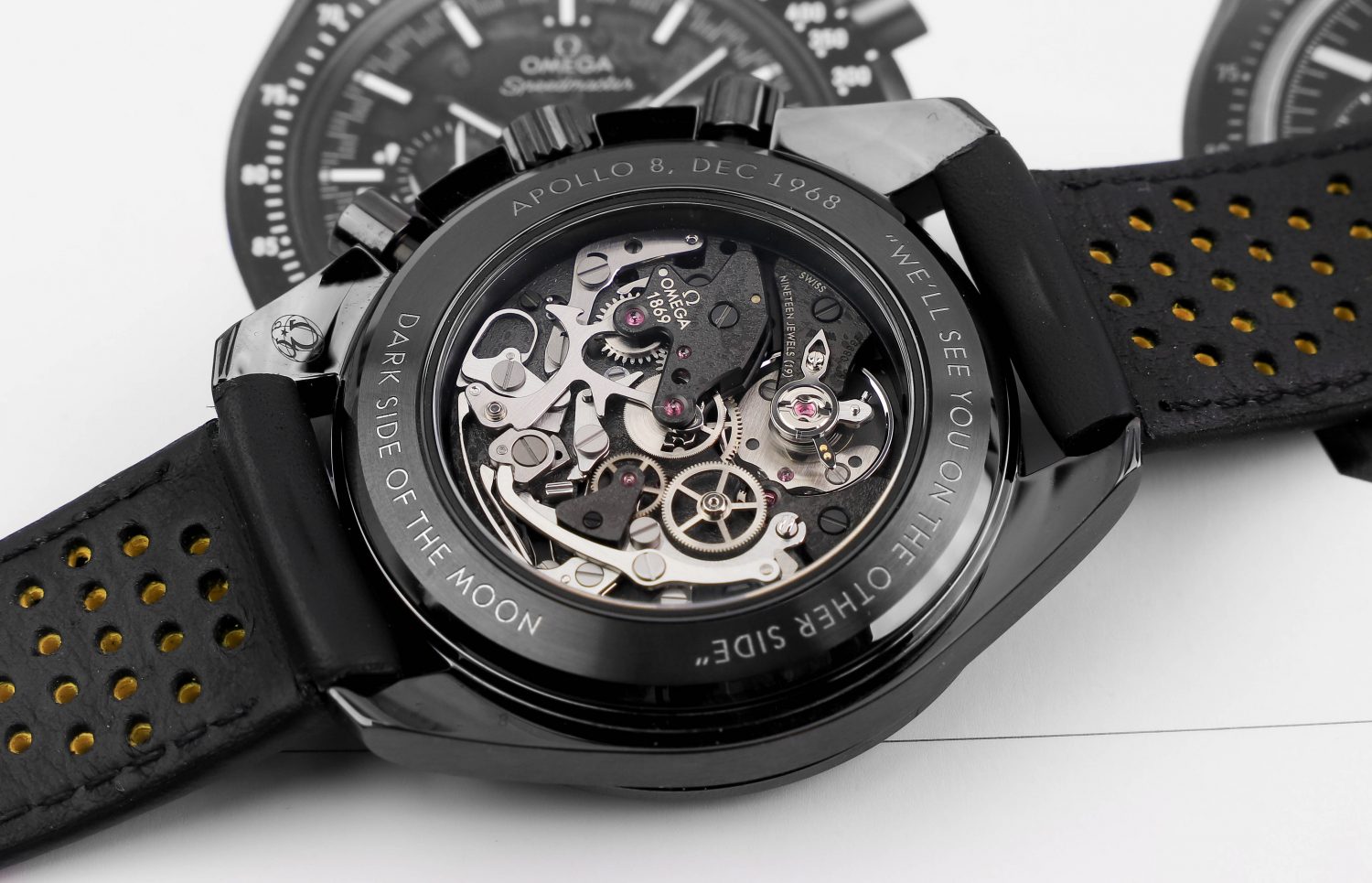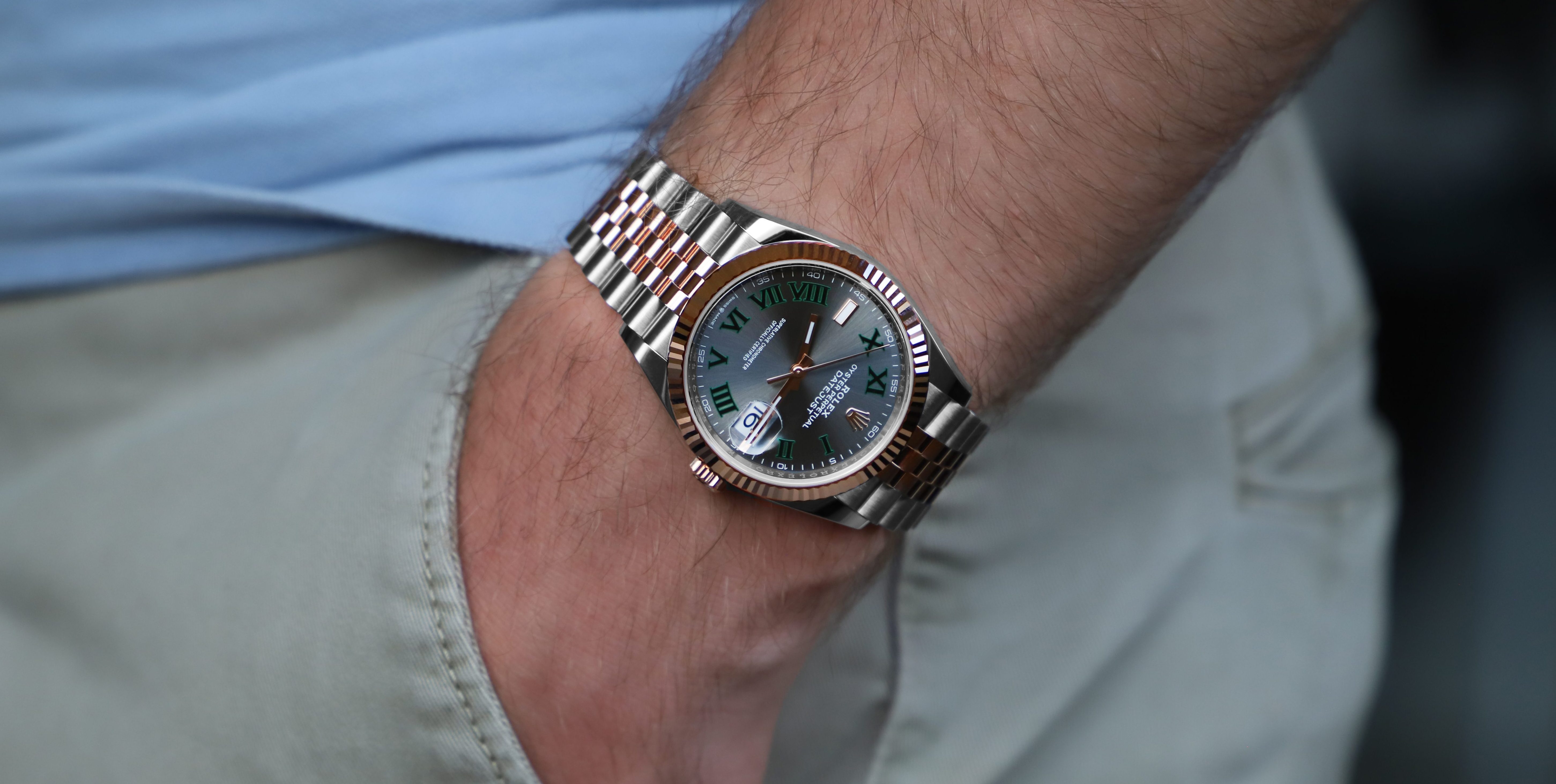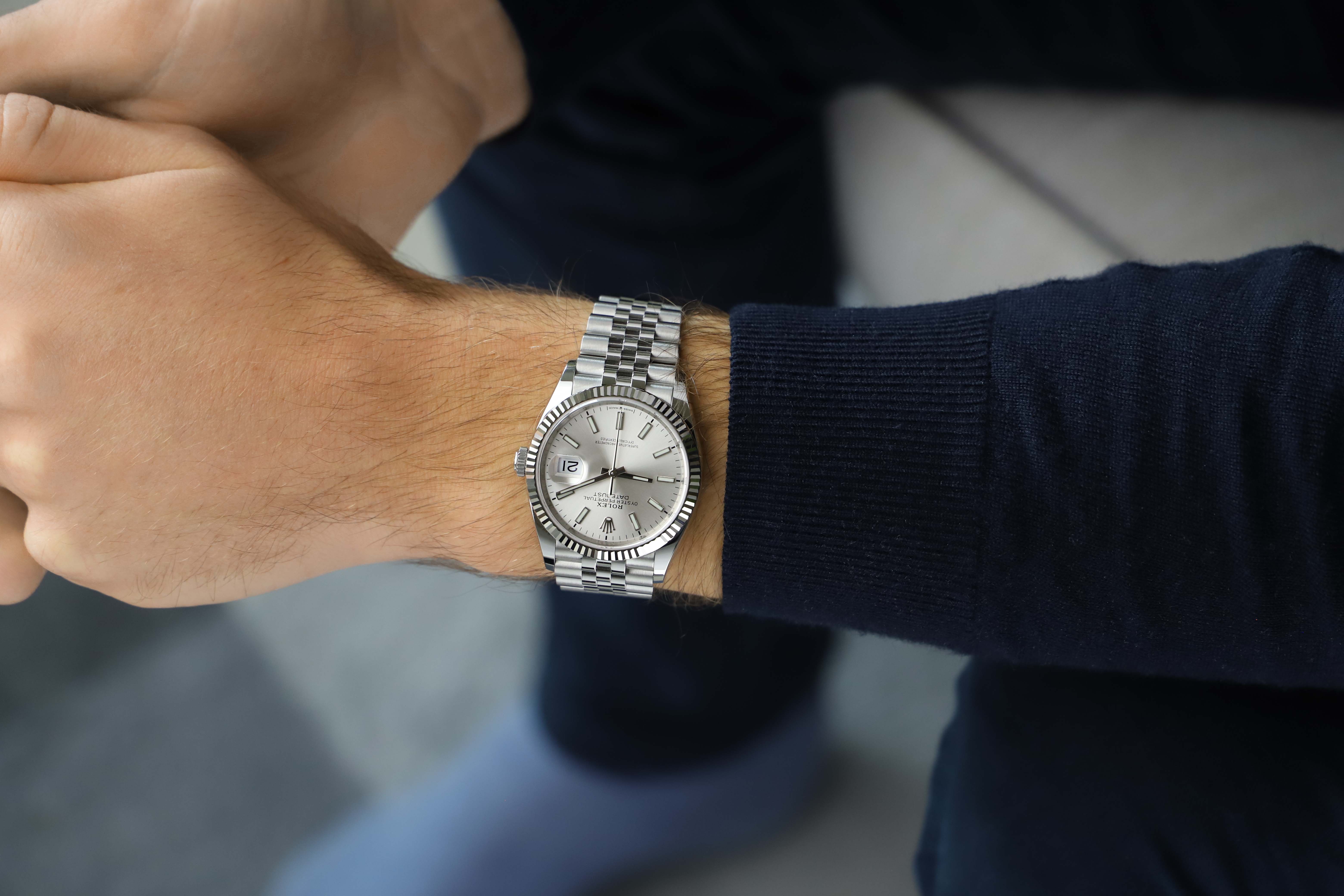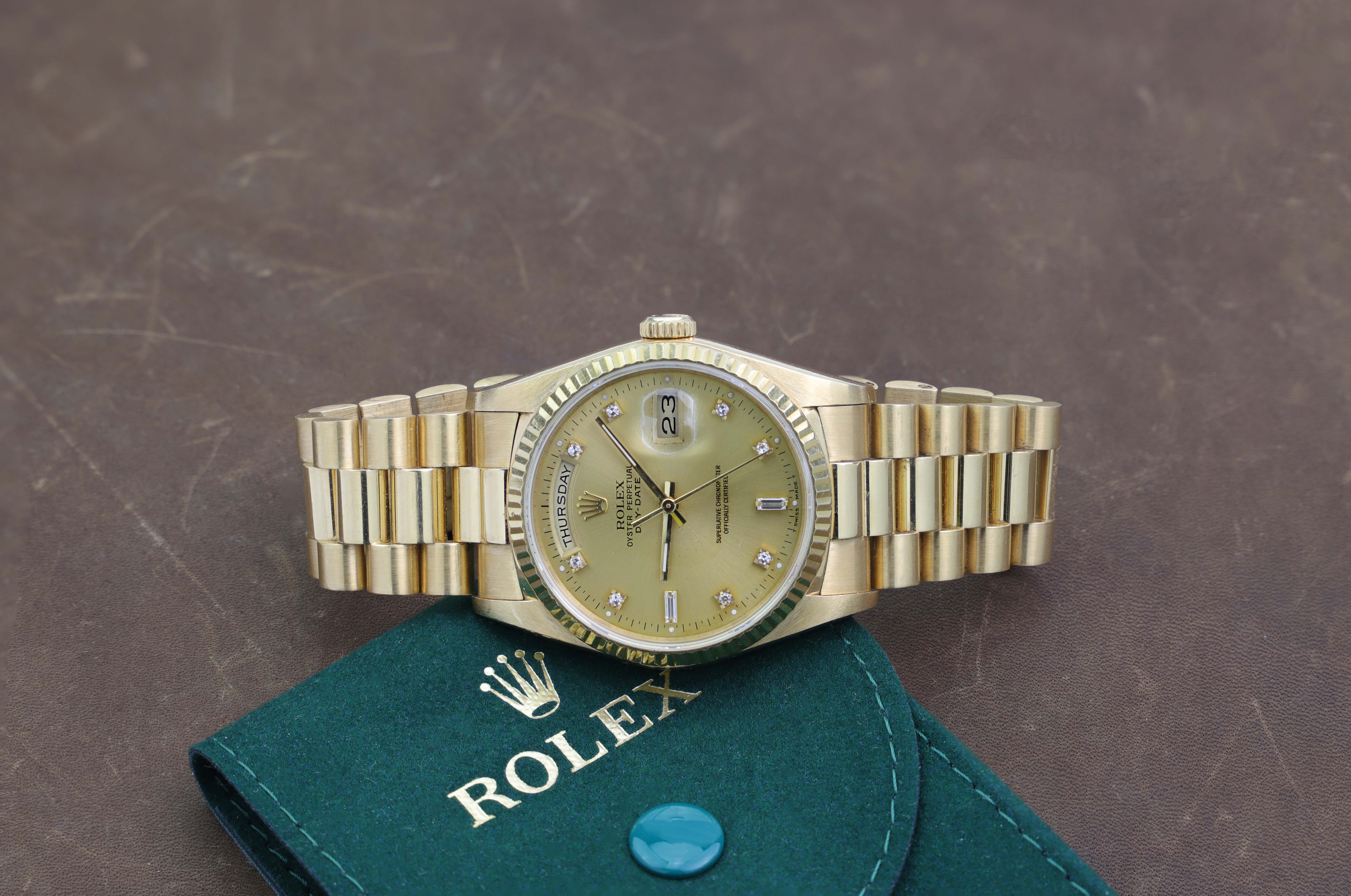
Are Watches Obsolete? Complete Guide
This is a question we receive quite frequently and see being asked by all kinds of people. In particular by those who are not into the watch industry and are not as devoted watch enthusiasts like ourselves.
But it’s a valid question so we thought we would answer it once and for all.
The real answer to that question is that the key purpose of the wristwatch has changed. The question is valid because the purpose of a wristwatch, at its core, is to keep track of the time.
The real truth is that most people don’t need a wristwatch today to keep track of the time. Most people today carry their mobile phone in their pocket almost at all times which allows them to instantly check the time. It’s very convenient since the mobile phone is something that people have with them at all times and because of this, the use of a wristwatch becomes superfluous.
Moreover, the mobile phone provides more accurate timekeeping than most wristwatches (assuming it’s not an atomic clock watch).
The purpose of the wristwatch has changed
From a functional sense, the watch is obsolete and has been for a long time. If we go all the way back to the early 1900s, the ability to check the time was limited. You had your pocket watch, and occasionally, you looked at a clock somewhere. Today, we not only have the clock instantly available in our pockets but also everywhere around us. On our computer, on our microwave, on our stove, in our car.
It’s not that our need for keeping track of the time doesn’t exist anymore. In fact, it’s quite the opposite in a high-paced society where we want everything on-demand and we want it now. It’s just that the methods most people tell the time has changed.

So from a functional standpoint, most people rarely need to rely on their timepiece to tell the time.
Sure, some people prefer to tell the time via their watch on the wrist and may find it more practical, but it’s no longer a crucial necessity in most cases.
When we talk about mechanical watches, it’s a completely different story as well. When quartz watches were invented in the 1970s, it led to the quartz crisis in Swiss watchmaking. Quartz watches can provide more accurate timekeeping than mechanical watches, and they only cost a fraction of a mechanical watch to manufacture.
So from a logical sense, if we only look at what a watch is meant to do – keep track of the time, then mechanical watches are actually quite terrible. They are much more expensive than quartz, and they cost considerably more. So how come the mechanical watches didn’t die out as soon as the quartz watch was introduced, and later even more accurate options like our phones? Naturally, there have to be some other reasons than only telling the time. And yes indeed it is. And we’ll go into detail about this further on.

In the last decade, smartwatches have exploded in popularity due to their functionality and practical features. Compared to a traditional wristwatch that can only display time, smartwatches are far superior to mechanical wristwatches in terms of function. They offer so much more than just the ability to read the time, including taking calls, texting, browsing the internet, looking at emails, getting health data, and so on.
So does this mean that the classic analog wristwatch is obsolete? Not quite.
The trend in watch sales also clearly supports this notion that we humans don’t buy watches as a means of telling the time anymore. At least not near to the extent that we did back in the day.
As stated by Watchbesbysjx:
“Entry-level watches continue to suffer from the onslaught of smartwatches. The proof is in the numbers: the Swiss watch industry has sold 13.7m watches in 2020, compared to 75m smartwatches, illustrating the divergent fates of the two. In 2016, the numbers were 25m against 22m respectively.”

“Smartwatches continue to be seen as a threat, although this depends on the price category – smartwatches are less of a concern for companies that manufacture or distribute only high-end mechanical watches” – Deloitte Swiss industry watch study
The interesting part of these statistics and statement is that whilst the sales of lower-end and entry-level Swiss watches has decreased in terms of volume, in terms of value, the Swiss watch exports have actually increased.
The Federation Horlogère Suisse (the Swiss Watch Federation) released export statistics for 2021 that reported exports for a total value of CHF 22,297 million. The exports were 31.2% higher than in 2020 (the year of Covid), 2.7% higher than 2009 and 0.2% higher than the highest ever recorded by the industry set in 2014.
So how is it possible that whilst watches, at least from a functional standpoint have become essentially obsolete, the more expensive luxury watches continue to increase in sales?
Well, the answer ties into what we discussed earlier: the purpose of the wristwatch has changed
Wristwatches have gone from functional tools to pieces of art and jewelry
It is said that the watch is the man’s only accessory. And this is a statement that a lot of men would agree with.
As stated earlier, there have to be some other reasons why people buy mechanical watches, in particular expensive ones, than solely for the purpose of telling the time.

And in our opinion, this is where the answer to the question of whether wristwatches are obsolete lies. Are watches obsolete?
If you ask us, the answer is no. But the reason for this is only because the purpose of the wristwatch has changed, and the reasons people wear them have also changed.
Sure, it can be practical to glance at your wrist to find out the time if you have a watch on your wrist. But it’s not crucial or finding out the time. In our view, there are a few key reasons why mechanical watches are not obsolete, and why the luxury watch segment is actually growing:
- People enjoy wearing nice things
- People discover and find appeal in the art of fine watchmaking
- The watch has become jewelry and accessory rather than a tool for telling the time
For thousands of years, humans have worn jewelry. As stated by JD institute of fashion technology:
“People love to adorn themselves with Jewellery as a way to express themselves through their fashion, showcase their unique style, and bring out their inner radiant beauty. Jewellery has always been an essential addition to outfits, whether traditional to the region or more casual”
Watches will never become obsolete as we will always need to know the time. The correct question would be if mechanical wristwatches will become obsolete when there are clearly far superior alternatives if you compare them side by side. However, the fact of the matter is that a lot of our decisions are driven by emotions and not by rational facts and thinking. For example, we may buy a car that is more expensive because of how it makes us feel. We may buy a shirt that is more expensive because it makes us feel good.

And herein lies a part of the answer to mechanical wristwatches. Even if mechanical wristwatches are inferior to quartz or other analog watches, people continue to buy them. People even buy mechanical watches for tens of thousands of dollars even if a $5 watch does the exact same thing. From a logical standpoint, this makes absolutely no sense. Why spend thousands and thousands of dollars when you can buy something for just a few dollars that do the exact same thing.
Clearly, there’s something else included in this equation, and it is emotion. If we look at it from the sole purpose of telling the time, then yes, mechanical watches have been obsolete since the 1970s.
The purpose of mechanical wristwatches has changed, or evolved, let’s say, throughout history. Initially, it was a tool for keeping track of the time. Then, more and more, the wristwatch turned into a fashion accessory. The watch evolved into becoming pieces of jewelry, in particular the more higher-end luxury watches. Today, most people don’t wear mechanical watches because they need them to tell the time.

They wear them as a fashion accessory to complement their outfit, they wear them because they appreciate fine craftsmanship and watchmaking. When a 20.000-dollar Rolex does the same thing as a 20-dollar Casio, then it’s clearly not about function. At the same time, the person wearing the 20-dollar Casio would probably only be wearing the watch for functional purposes. Perhaps they don’t want to have to pull up their phone to tell the time when they have their hands full. But when talking about emotions, which of these watches do you think feels more special to put on? Which of these watches do you think you get the most pride and enjoyment out of?
The answer is rather obvious, isn’t it?
People wear watches because it brings them pride and enjoyment. And humans’ emotions are something that will never become obsolete. So many comparisons can be made with mechanical watches that are things that will never become obsolete. For example, people buy old and vintage cars for much more than their modern counterparts, even if they have less horsepower, inferior quality, and worse performance. Art is essentially the same thing as well.
And the exact same principles can be applied to mechanical wristwatches.

Mechanical watches will likely never become obsolete because they bring us all these things and emotions that do not have anything to do with rationality. They make us feel good, they make us appreciate them for what they are, and they are collectible works of art. When you understand the complexity of making a luxury mechanical wristwatch, you can appreciate the item even more. They carry history and personality, and they require extreme precision and expertise to manufacture.
This also explains why expensive luxury watches have gotten increasingly popular in recent years, whilst affordable entry-level watches have actually decreased in popularity in favor of things like smartwatches that focus purely on functionality and not emotions.
Conclusion – are mechanical watches obsolete?
With all of the things discussed above, mechanical watches are absolutely not obsolete. At the same time, if we are talking about mechanical watches purely from a functional perspective, i.e, telling the time, then mechanical watches have been obsolete for a long time.

But those who only see mechanical watches as a means of telling the time are missing the point. And they also tend to be the people who ask the question of whether mechanical watches are obsolete in the first place.
Clearly, there are far more affordable and superior alternatives for keeping track of the time than a mechanical watch. But whilst it is practical to have a watch that tells the time, that’s not the primary reason people buy them.
People buy mechanical watches because they are beautiful works of art that require great expertise to create. People buy them because they can appreciate the fine art and craftsmanship they represent. The timekeeping aspect is just a bonus. The parallels can be drawn to art, vintage cars, and other collectible items.
It’s not driven by functionality or practicality. It is driven by human emotions. If you believe that mechanical watches are obsolete, you are failing to see the bigger picture and the true reasons people buy them.





Very good explanation in the pro & con of watches tfat have evolutionize into a fashion statement where appropriate!…
Glad you like it! Thank you for your comment!
Kind regards,
Millenary Watches